Our Annual, Virtual Science Education Book Study
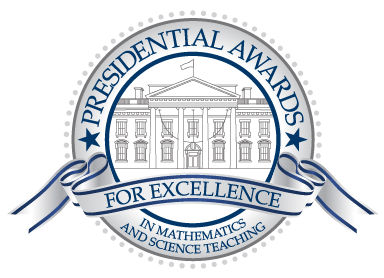 Each year DPI partners with the Wisconsin Society of Science Teachers to support a virtual book study. We aim to connect educators, learn together, and support teachers who are applying for the Presidential Award for Excellence in Math and Science Teaching. Resources and recordings for each year are below, starting with the most recent book study.
Each year DPI partners with the Wisconsin Society of Science Teachers to support a virtual book study. We aim to connect educators, learn together, and support teachers who are applying for the Presidential Award for Excellence in Math and Science Teaching. Resources and recordings for each year are below, starting with the most recent book study.
2023 Book Study - Climate Change
We focused on the NSTA Press book, Understanding Climate Change, Grades 7-12 (with online extras)
- Notes
- Archive of agendas and resources - provides running notes and linked resources from the four-months of the book study
- Due to the politicized nature of the topic, we did not record any of the sessions
- Archive of agendas and resources - provides running notes and linked resources from the four-months of the book study
- Further Resources
- NSTA Climate Change Collection - curated set of resources
- NOAA's Climate.gov has lots of educational resources, including a description of how climate models work.
- CLEAN - Climate and energy education resources, including a curated database of lessons/resources.
- Climate Generation - resources and a free, national teacher network
- Climetime - This Washington resource has educator resources connected to NGSS standards.
- Science is Fun's Climate Resources - resources from Dr. Shakashiri/UW-Madison, including a workbook to help high school students understand the science behind climate change
- Climate Wisconsin - PBS Education resource sharing stories from across Wisconsin on a changing climate
- Wisconsin Initiative on Climate Change Impacts - resource from UW-Madison that includes useful data and maps
2022 Book Study - Crosscutting Concepts
We focused on the NSTA Press book, Crosscutting Concepts: Strengthening Science and Engineering Learning.
- Slides and Recordings
- Oct 2021 - Introduction, with special guest and author Dr. Helen Quinn, who spearheaded the inclusion of crosscutting concepts in the NRC K-12 Science Framework and coined the idea of "three dimensional" standards. Slides. Recording.
- Nov 2021 - Systems, energy, stability and change, and scale/proportion - facilitated by Karen Mesmer. Slides. Recording. The "Ecosystem in a Jar" was the phenomenon of focus.
- Jan 2022 - Patterns, cause and effect, and structure and function - facilitated by Shelley Petzold. Slides. Recording.
- Feb 2022 - Assessment with the crosscutting concepts, with special guest and author Aneesha Badrinarayan. Slides.
- April 2022 - Practical classroom application of the CCCs - facilitated by Chad Janowski at the WSST conference. Slides.
- Further Resources
- STEM Teaching Tool 41 - scaffolds and sample questions to use each crosscutting concept
- NSTA Article - "Using rubrics to integrate crosscutting concepts"
- Sample chapter (Ch 3) and Preface by Helen Quinn from the NSTA Crosscutting Concepts book
2021 Book Study - Equity and Access in Science Education
This year we're doing things a little bit differently. We'll have our book study discussions every month of the school year (except December) on the 3rd Monday of each month. We will not have one specific book, but instead we'll dig into a variety of articles and book chapters.
- Articles
- The Opportunity Myth - report on unequal access to grade-level learning from TNTP
- NGSS Appendix D - All Standards, All Students - includes classroom case studies of various underserved student groups
- A Guide to Equity and Anti-Racism for Educators - ideas and further links from Edutopia
- Building an Anti-Racist Science Classroom - overview by Leena Bakshmi and other articles at the bottom of this NSTA Next Gen Navigator
- Books or Book Chapters
- Braiding Sweetgrass, Robin Wall Kimmerer
- Toward More Equitable Learning in Science by Megan Bang et. al. - Chapter 3 of Helping Students Make Sense of the World from NSTA Press
- Teaching Science in Diverse Classrooms: Real Science for Real Students by Doug Larkin - this is a link to the podcast of the book; the book itself can be found here.
2020 Book Study - Evidence-Based Writing
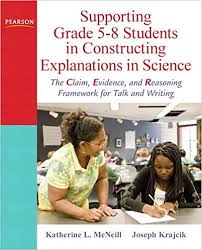
- Books
- What's Your Evidence: Engaging K-5 Students in Constructing Explanations in Science - by Carla Zembal-Saul, Katherine McNeill, and Kimber Hershberger; there's also a Facilitator's Guide
- Supporting Grade 5-8 Students in Constructing Explanations in Science: The Claim, Evidence, and Reasoning Framework for Talk and Writing - by Katherine McNeill and Joseph Krajcik - the CER go-to guide!
- Related Resources
- Inquiry and Scientific Explanations: Helping Students Use Evidence and Reasoning - related article by McNeill and Krajcik from NSTA journal
- Claims, Evidence, and Reasoning K-5 Progression - seeing how the skills build over time
- Recordings and Slides
- Jan - slides and recording - Constructing explanations, chapters 1-2
- Feb - slides and recording part 1 + recording part 2 - Planning instruction and supporting talk, chapters 3-4
- Apr - Guest presenter and author Dr. Carla Zembal-Saul shared on KLEWS, here's a chapter she wrote with Kimber Herchberger on how their thinking has evolved on CER, and here's another article on KLEWS by the two of them.
- May - slides and recording - connected to chapters 5-6, also general discussion around CER strategies
2019 Book Study - Ambitious Science Teaching
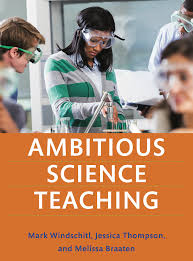
- Book
- Ambitious Science Teaching - by Mark Windschitl, Jessica Thompson, and Melissa Braaten
- Related Resources
- Tools for Ambitious Science Teaching - the website related to the book - full of videos, templates, and lessons
- Recordings and Slides
- Jan - slides - and recording - Planning for Engagement with Big Science Ideas: Core practice set 1, Ch 1-4
- Feb - slides and recording - Eliciting Students’ Ideas: Core practice set 2, Cha 5-7
- Mar - in-person meeting slides from WSST conference - Making Thinking Visible through Models: Core practice set 3, Ch 8-10
- Apr - slides and recording - Drawing Together Evidence-Based Explanations: Core practice set 4, Ch 11-14
2018 Book Study - Helping Students Make Sense of the World
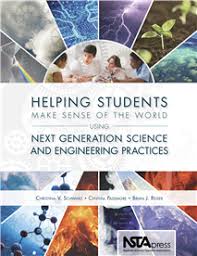
- Book
- Helping Students Make Sense of the World Using Next Generation Science and Engineering Practices - by Christina Schwarz, Cynthia Passmore, and Brian Reiser
- Related Resources
- DPI Science Practices Website - lots of links to related resources, including webinars on these practices
- Recordings and Slides
- Jan - slides - recording - Introduction (Ch 1-4), Asking Questions (Ch 5) and Defining Problems (Ch 13)
- Feb - recording - Modeling (Ch 6) & Obtaining/Communicating Information (Ch 12)
- Mar - in-person meeting slides from WSST conference (no recording) - Planning & Carrying Out Investigations (Ch 7) & Using Data (Ch 8)
- Apr - slides and recording - Mathematical Thinking (Ch 9), Explanations (Ch 10), and Argumentation (Ch 11)
2017 Book Study - Teaching for Conceptual Understanding in Science
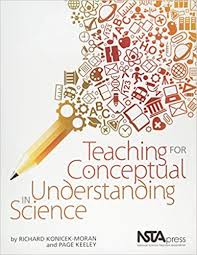
- Book
- Teaching for Conceptual Understanding in Science
- Related Resources
- Conceptual Change in Science Teaching - Peter Hewson, UW-Madison
- Page Keeley assessment probes - and video of Page Keeley describing what they are and how they work
- Recordings and Slides
- Mar - in-person meeting slides - from WSST conference (no recording) - focused on formative assessment probes
- Apr - recording and slides - formative assessment and making thinking visible
2016 Book Study - Inquiring Scientists, Inquiring Readers
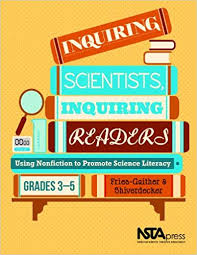
- Book
- Inquiring Scientists, Inquiring Readers (grades 3-5) - this book shares inquiry-based science lessons connected to specific trade books that students read on that topic, by Terry Shiverdecker and Jessica Fries-Gaither. There is also a grades 6-8 version.
- Related Resources
- Picture Perfect Science - another book series that connects inquiry-based science lessons with grade level trade books, focused on grades K-5, by Emily Morgan and Karen Ansberry.
- Recordings and Slides